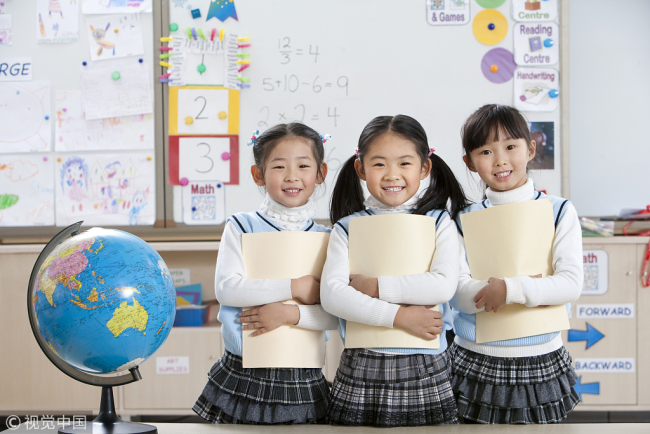Policy seeks to improve students' science literacy
By Zou Shuo | China Daily | Updated: 2023-05-31 09:03

China aims to greatly improve the science literacy of the nation's students in the next three to five years through efforts to reform science education in primary and secondary schools, according to a recent guideline.
New technologies such as artificial intelligence and virtual reality will be used to teach students how to perform experiments and bridge the gap in education resources in underdeveloped schools and regions, said the guideline, which was released by the Ministry of Education and 17 other departments.
Local authorities need to make sure that science courses at primary and secondary schools adhere to their syllabuses, and the time used to teach these courses should not be infringed upon by teachers of other subjects.
Meanwhile, each school needs to have a vice-principal in charge of science education and a science student counselor.
Schools are encouraged to invite experts and scientists to give lectures on campuses and organize student trips to scientific venues, the guideline said.
Moreover, science education should become a core subject in after-school services offered by schools, and activities such as science lectures and experiments should be carried out to increase students' interest.
Organizations and institutions such as universities, research institutes, science parks and museums are expected to better serve primary and middle school students.
Enterprises, especially those focusing on cutting-edge technology, are also encouraged to offer equipment, software and personnel to schools in underdeveloped regions and invite primary and middle school students to visit and learn how scientific knowledge is used in real life, the guideline added.
The document marks another step in China's efforts to build a country that is strong in education and science, as the report of the 20th Communist Party of China National Congress stressed the need to further integrate the development of education, science and talent.
Meanwhile, engineering and science majors have gained favor among Chinese university students, with AI topping the list of the most popular majors among new undergraduates.
Wei Yungang, director of the experimental education center at Beijing Normal University's School of Artificial Intelligence, said while first-tier cities offer better science education, resources are lacking at schools in smaller cities and rural areas.
Therefore, it was quite notable that the guideline stressed bridging the education gap with the use of AI, he said.
With the advent of the AI era, schools need to help students embrace the technology so they can develop the ability to solve problems with it, he said, adding that AI proficiency will be very important in future global competition.
The use of AI and digital education can help less-developed regions gain access to high-quality education materials, Wei said.
"The large amount of data and information gathered in daily classrooms can be analyzed by AI, so we can get a better understanding of how students learn, and how teachers and education authorities can use that knowledge in policymaking," he said.
Moreover, more efforts are needed to deeply integrate AI in classroom learning and teaching, which will bring major changes to how students are educated, he added.
























